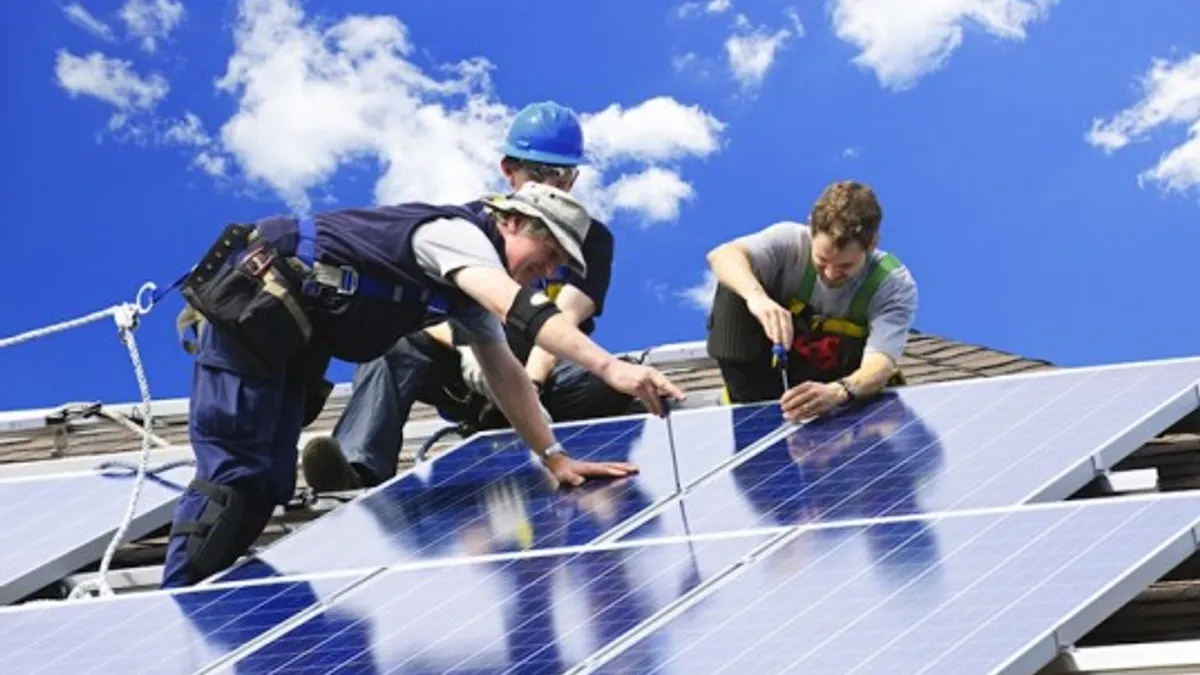Dive Brief:
- The Arizona Corporation Commission (ACC) voted to hold hearings on the Arizona Public Service (APS) proposal to raise its fixed charge from $0.70 per kilowatt to $3 per kilowatt on customers who own residential solar arrays after it obtains a distributed solar cost-benefit analysis for the proceeding.
- The utility, the state consumer advocate and others concerned about a perceived shift of costs for grid infrastructure from solar owning customers to non-solar owning customers called for the commission to immediately approve increasing the extra monthly cost of an average 7 kW system from $4.90 to $21.
- Solar advocates argued for the cost-benefit analysis in a rate case, expecting it to show distributed solar provides more system benefits than costs and to lead to the end of the fixed charge imposed in 2013. However, they fear the new proceeding will result in a utility-controlled study.
Dive Insight:
The fight over rooftop solar is seemingly always on in Arizona, with the cost-benefit analysis and hearings set to produce much disagreement and controversy among stakeholders.
“Customers who install distributed generation (DG), like rooftop solar, do use the grid — 24 hours a day. But because of a rate design that the Commission has found to be ‘unfair' and ‘defective,’ customers with DG don’t pay their fair share for that use,” APS explained in ACC Docket 13-0248.
"The proper way to look at rooftop solar’s value is for the Commission to lead and initiate a fair and objective study,” responded Arizona Solar Energy Industries Association President Mark Holohan. “Instead the Commission’s decision will just be a replay of the rancor of 2013’s solar fight.”
Since the battle over fixed charges in 2013, at least two new faces have entered the fray. Newly elected ACC Commissioners Doug Little and Tom Forese, who both voted to hold hearings on APS's proposal, are set to help decide the future of solar and the grid in Arizona. Both face scrutiny due to the fact they received over $3 million in campaign donations widely believed to have originated from APS but funneled through independent groups, according to the Arizona Republic. The utility has not denied the allegations.













